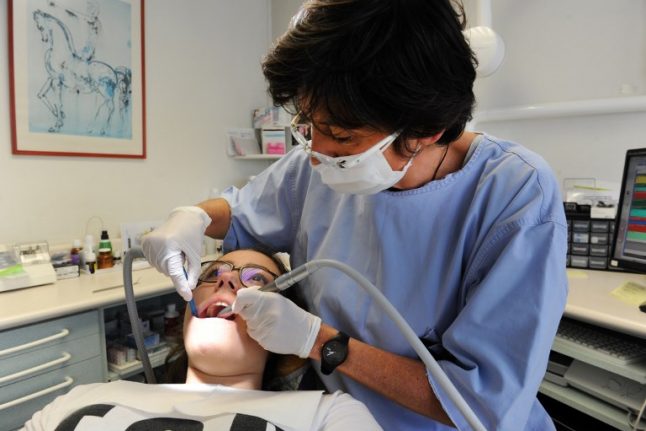April 1 marks the end of the 'winter break' when tenants who are in rent arrears cannot be evicted, so eviction procedures for non-payment of rent or utility bills will resume today. According to anti-poverty charity Fondation Abbé Pierre, 15,550 people were evicted with the assistance of the police in France in 2017.
READ ALSO Everything that changes in France for 2019

Car mechanics are now legally obliged to offer customers the option of second hand parts. Photo: AFP
Gas prices
In good news, gas prices have fallen, albeit not by much. According to the Energy Regulatory Commission, the fall equates to -0.7 percent for those who use gas for cooking, -1.3 percent for those who have a dual use cooking and hot water, -2.2 percent for homes which are heated by gas, and -2.5 percent for households equipped with small boilers.
Motoring
Getting your car fixed could potentially be cheaper from today, as mechanics are now legally advised to offer motorists the option of having parts replaced with second hand items, which can be 30 to 50 per cent cheaper. The car owner then makes the decision on whether to get a new or second hand part.
Health
In healthcare, the price of certain dental procedures have been capped; The price of a zirconia crown on a visible tooth can now not exceed €480 while a metal-ceramic bridge on incisors will now cost a maximum of €1485.
Price controls have also been added to wigs for cancer patients, with a greater level of reimbursement and a price cap on synthetic wigs.
There has also been a change to the ceiling for the allocation of free medical care, the Couverture maladie universelle complémentaire (CMU), from €8,810 a year to €8,951 a year for a person living alone. For two people living together, the ceiling is €13,426.
Benefits
There has also been a small rise in certain types of benefit, with a 0.3 per cent rise in certain types of family allowances, as well as disability benefits for some people and workplace accident pensions.



 Please whitelist us to continue reading.
Please whitelist us to continue reading.
Member comments